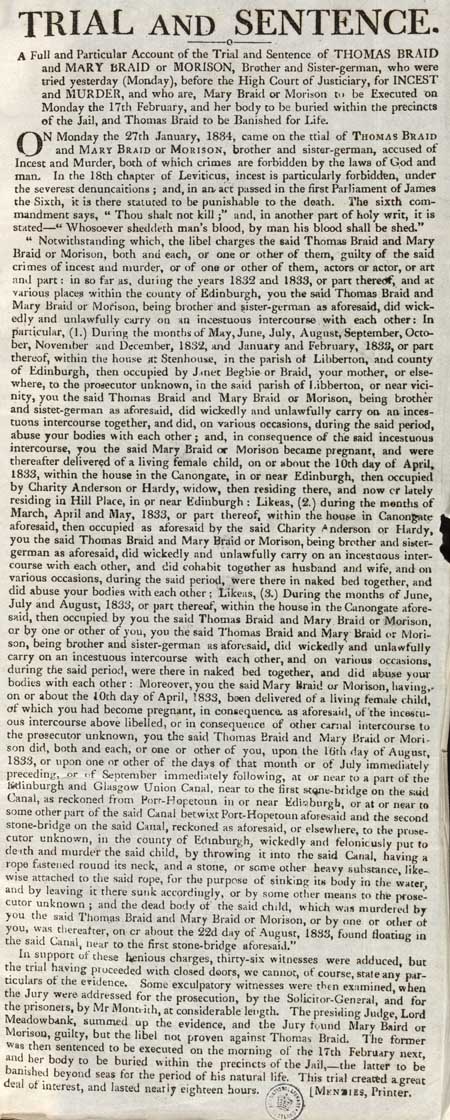Commentary
This crime report begins: 'A Full and Particular Account of the Trial and Sentence of THOMAS BRAID and MARY BRAID or MORISON, Brother and Sister-german, who were tried yesterday (Monday) before the High Court of Justiciary, for INCEST and MURDER, and who are, Mary Braid or Morison to be Executed on Monday 17th February, and her body to be buried within the precincts of the Jail, and Thomas Braid to be Banished for Life.' It was published by Menzies of Edinburgh, in 1834. The phrase 'sister-german', rarely used nowadays, means 'full sister' rather than 'half sister' or 'step sister'. It is perhaps included in this broadside because it was the legal term used at the trial and much of the broadside seems to be a direct transcription of the court proceedings. It was probably necessary for the court to make this distinction, to specify the degree of seriousness of the crime. The difference in sentences passed reflects the tendency of the Establishment in nineteenth-century Scotland to blame all crimes of a sexual nature principally on the female participant. This prejudice is evident in many other crime broadsides. Reports recounting dark and salacious deeds were popular with the public, and, like today's sensationalist tabloids, sold in large numbers. Crimes could generate sequences of sheets covering descriptive accounts, court proceedings, last words, lamentations and executions as they occurred. As competition was fierce, immediacy was paramount, and these occasions provided an opportunity for printers and patterers to maximise sales.
View Transcription | Download PDF Facsimile
|
 |
Date of publication:
1834 shelfmark: F.3.a.13(116)
 View larger image
View larger image
|


